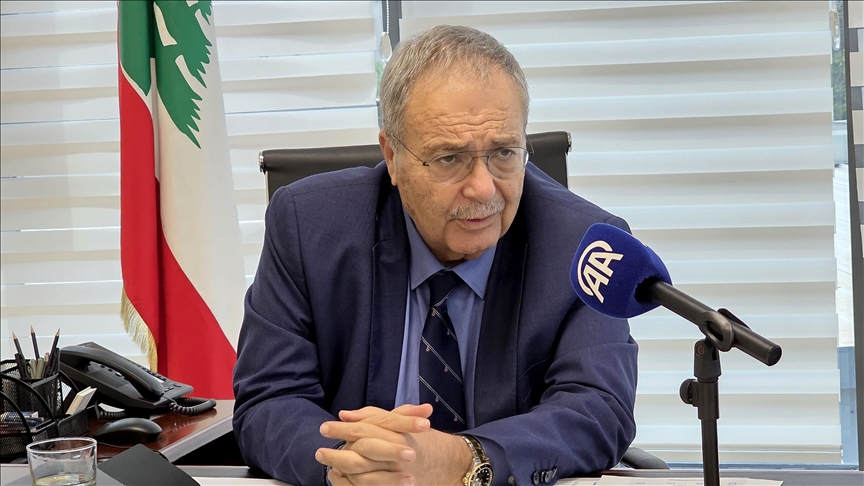Lebanon, Syria close to restoring diplomatic relations: Lebanese official
‘We have an opportunity to rebuild those ties on new foundations based on equality, mutual respect, and reciprocity,’ Deputy Prime Minister Tarek Mitri says

BEIRUT / ISTANBUL
Lebanon is close to restoring diplomatic relations with neighboring Syria, Lebanese Deputy Prime Minister Tarek Mitri said on Wednesday.
“Relations between the two countries over the past five decades were unequal and a source of grievance for most Lebanese,” Mitri said in an interview with the Lebanese state television.
“Today, however, we have an opportunity to rebuild those ties on new foundations based on equality, mutual respect, and reciprocity, without one imposing its guardianship over the other,” he added.
Mitri described the current relationship between Beirut and Damascus as being “built on a clean slate,” adding that the diplomatic exchange between the two countries “will take place soon.”
Since the fall of Bashar al-Assad’s regime in December 2024, Damascus has not appointed a new ambassador to Beirut in place of Ali Abdul Karim Ali, who served under the previous regime.
Lebanon, meanwhile, has appointed Saad Zakhia as ambassador to Damascus, and he is expected to begin his duties in November.
In recent months, Lebanon and Syria have stepped up diplomatic coordination on key issues, including the file of missing Lebanese in Syrian prisons and the issue of Syrian detainees in Lebanon, in addition to land border demarcation and efforts to boost economic cooperation.
Refugees
Regarding the situation of the Syrian refugees in Lebanon, Mitri said Beirut “does not seek to settle them permanently on its soil, but rather to repatriate them to their homeland—while keeping those needed by the Lebanese labor market.”
According to estimates, Lebanon hosts about 1.8 million Syrian refugees, nearly 880,000 of whom are registered within the data of the UN Refugee Agency (UNHCR).
About Syrian inmates in Lebanese prisons, Mitri stressed the necessity of an urgent solution, “especially since the terrorist designation has been lifted from the groups they once belonged to.”
There are currently around 2,000 Syrian prisoners in Lebanon, many of whom remain detained for alleged support for the Syrian revolution from 2011–2024 or providing humanitarian or logistical aid to opposition factions that fought against the Assad regime.
Mitri voiced concern that Israel may escalate its hostile actions against Lebanon, warning that the situation “could expand and take new forms.”
On Monday, US envoy Tom Barack, who has played a vital role in the Lebanese government’s plan to disarm non-state groups in the country, warned that Israel may “act unilaterally” if “Beirut fails to act” to disarm Hezbollah.
He added that the ongoing Israeli military drills along the southern border, which began Monday and will continue until Thursday, are “worrying.”
In August, the Lebanese government approved a plan to confine all weapons under state control. Hezbollah rejected the plan and stressed that it will retain its arms until Israel withdraws from five occupied border outposts in the south.
Under a ceasefire deal between Israel and Lebanon last year, Tel Aviv was supposed to fully withdraw from southern Lebanon by January 2025. However, it has so far only partially pulled out troops and continues to maintain a military presence at five border outposts.
Anadolu Agency website contains only a portion of the news stories offered to subscribers in the AA News Broadcasting System (HAS), and in summarized form. Please contact us for subscription options.







